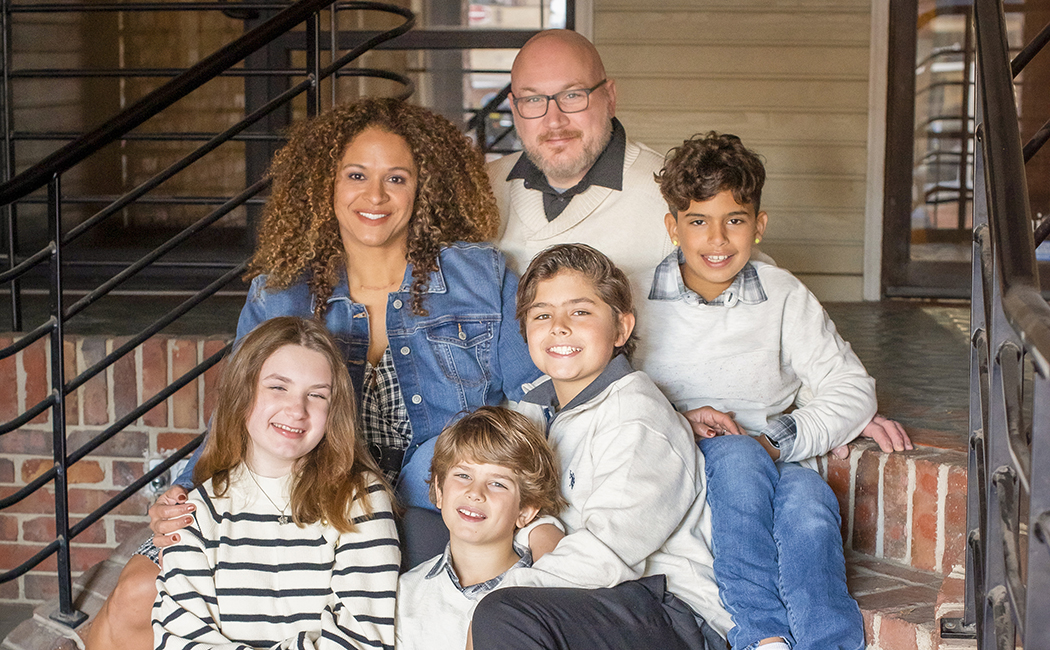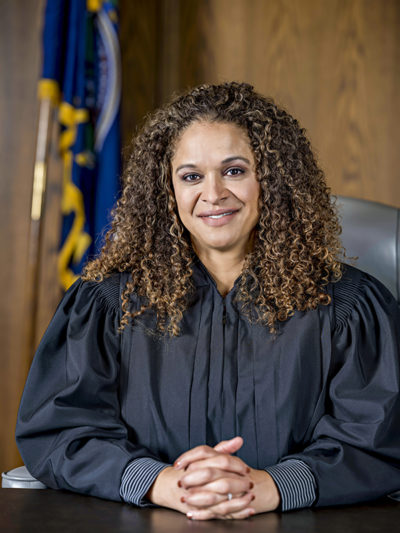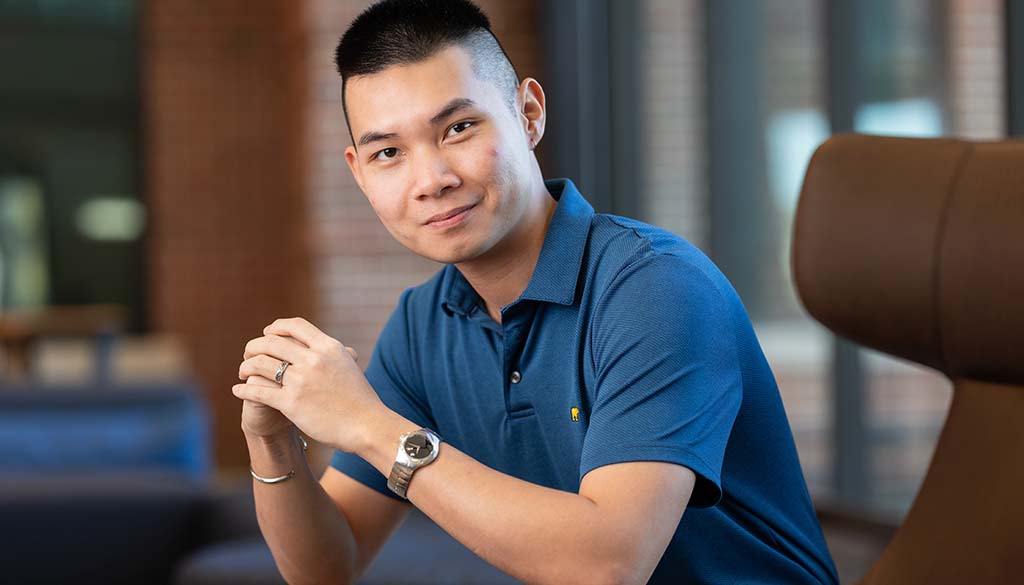Champion of the law

Kansas’ newest appellate judge had a strong “sense of fairness, of right and wrong” at an early age, and it really took off her first or second year of elementary school, when police visited her home one night on a domestic violence call.
“They threatened to arrest my mother because she had thrown something at the person who was hitting her,” recalls Jacy Hurst, who says her parents had split by that time and the incident did not involve her father. “As I understood it as a young child, the protocol was if you were both fighting, they took you both to jail. And I thought, ‘Well, that doesn’t make any sense. This can’t be right.’”
Her burgeoning sense of justice grew as the family’s interaction with the legal system continued. When she was in second grade, Hurst lived with her mother in a domestic violence shelter for a time.
“Throughout elementary school I’m like, ‘I’m going to be a lawyer. In fact, I’m probably going to be a judge,’” Hurst says. “Then in sixth grade we did this program called Exchange City.” The Kansas City hands-on learning experience assigned students different jobs in a simulated town and was a popular field trip for elementary schools. “I was the judge of Exchange City,” she says, laughing at how seriously she took the assignment. “I really laid down the law, frankly. I didn’t give people a lot of passes, and when they protested they all got fined.”
Hurst became a judge for real in 2021 when she was appointed to the Kansas Court of Appeals by Gov. Laura Kelly. As one of 14 judges on the appeals court, she hears cases from all over the state that can range from routine traffic tickets to multi-million-dollar contract disputes to criminal offenses.
Although she got there eventually, the journey from childhood dream to reality was not a direct route.
After earning degrees in business and law, Hurst, b’02, l’07, carved out a career in private practice in Kansas City, specializing in health care regulatory and employment law, becoming a partner at Kutak Rock and serving as general counsel and chief compliance officer for Swope Health Services, a network of health care clinics for underserved patients. Conversations with her children—she is mother to three sons and a stepdaughter—inspired a career rethink.
“They started asking what made me decide to be a lawyer, and when did I know, and I started talking to them about wanting to impact the world, how I wanted to be a judge. And then I got a lot of questions about why I had failed so miserably at my goals,” Hurst says, laughing again. “And I thought, gee whiz, why have I failed so miserably?”
She realized the idea of becoming a judge—something legal colleagues had also encouraged her to pursue—was worth another look.
“You start following a career path and you keep taking the next logical steps that make sense and don’t stop to think, ‘I can take a sharp turn and do this other thing that really is where my heart lies.’”
During an Aug. 13 investiture in Topeka, Chief Judge Karen Arnold-Burger, c’79, l’82, noted that Hurst is the first Black woman to serve on the court, “an historic verse that we are so proud to witness during our tenure.”
Hurst recognizes the importance that her precedent-setting appointment can hold for others who dream of a legal career someday.
“I had the experience in looking up to people, and as humans we all want to have a connection, to think, ‘That person’s a little bit like me and they did this, so I can do this.’ To the extent that having more representation, not just in color, but in background and experience, makes someone else feel connected, then that’s great,” she says.
Robin Wheeler Sanders, chief people officer at Swope Health, recounted how Hurst began babysitting the children of radiology patients in her office so that mothers without childcare would not miss appointments. “Jacy has an uncanny ability to acknowledge the potential human impact of a decision while refusing to let sentiment overcome reason in her application of the law,” Sanders said. “She’s a true champion of the law.”

Filling that role, Hurst says, means believing in the legal process and following it in every case, even when the outcome may seem difficult.
“Our system is set up to hopefully ensure equal access and application,” she explains. “Sometimes people don’t understand why we have to have these rules where someone who is truly guilty has what someone would perceive as a technicality applied to their case that gets them a new trial. For me, being a true champion of the law is really adhering to that process, even when we might wish this fact or that fact were different. We don’t get to pick the facts.”








